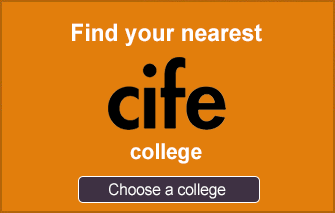Extra-curricula enrichment activities have long been a mainstay of schools and colleges both across the UK and around the world. For many institutions, this means incorporating a range of activities into the existing curriculum for which students can enrol. Indeed, many Cife colleges offer a variety of ‘in-house’ clubs to students in this way such as debating, mindfulness and critical thinking. There is no doubt that students gain a lot from attending these but how far do these go in preparing them for life beyond sixth form college?
Ask any Cife college A level student and they would more than likely agree that learning to be independent is a priority when embarking upon the next phase of their lives as university students. This is where enrichment activities can really help. But, more than this, being tasked with independently researching and locating available enrichment activities that they are highly interested in and passionate about, elevates the advantages of such activities to another level. Being independent is a mindset that Cife colleges greatly encourage and nurture and giving our students ownership of their enrichment activities strongly contributes to this ethos. Students begin to use their initiative sourcing clubs, talks and seminars, to name but a few, that fuel their excitement. Whether the activities involve a preferred sport or an event that is closely related to future areas of study at university, the students have control over this and therefore take responsibility.
This process benefits students in many ways, allowing them to use their initiative, thus building upon and improving vital skill sets required for university life and beyond such as communication and time management skills. It must also be remembered that being able to not only describe any enrichment activities that students are involved in but also to explain how they came upon them holds much gravitas when it comes to the UCAS application. It is this display of initiative and independence that university admissions tutors often look to in order to differentiate between applicants who have been predicted similar A level grades.
The proof of the pudding, as they say, is in the eating. It is not possible to give the opinions of all of students who have reaped the benefits of independent enrichment, but the following students certainly relay a positive message.
Michael was very interested in Anthropology and Archaeology. He was aware that many students enrol on to degree courses with very little experience of the subject, especially with subjects such as Anthropology and Archaeology which are no longer taught at A level. As such, he understood the risks that this could pose so was eager to supplement his A level studies with a deeper knowledge in these areas. He therefore independently researched any local activities which might help him and enrolled onto a talk delivered by Dr Cameron Petrie, Reader in South Asian and Iranian Archaeology at the University of Cambridge and a Fellow of Trinity College. Michael says,
“Being able to attend events on these subjects was invaluable, offering insight into the course that may be hard to find elsewhere. I found the course so engaging that it confirmed to me that I would thoroughly enjoy Anthropology and Archaeology. I now feel I can apply for them without the fear of regret. It also goes without saying that attending talks and the like is an excellent addition to a UCAS personal statement.”
Jessica was considering a career in medicine but was unsure if this would be the right path for her. After some research, Jessica discovered that Addenbrooke’s Hospital, a leading research centre and national centre of specialist treatment, offered a variety of volunteering opportunities including the competitive Young Person’s Programme (YPP). After completing an application and navigating the interview process, Jessica was offered a position within the programme. Jessica says,
“From this experience I have learnt the importance of concise and clear communication. I have learnt new skills and knowledge that I would not have otherwise discovered. Being part of the programme has boosted my confidence and has broadened my social network in Cambridge. The experience has given me a great advantage.”
It is therefore clear how independent enrichment can improve the lives of students, not just from an academic perspective but also with regards to character building and personal development. Students not only leave with a great education but also the skills and confidence needed to continue their success beyond sixth form.
This article was written by Frankie Frangeskou, Director of Studies, Mander Portman Woodward (MPW) Cambridge
Return to the list of CIFE Intercollegiate Articles

